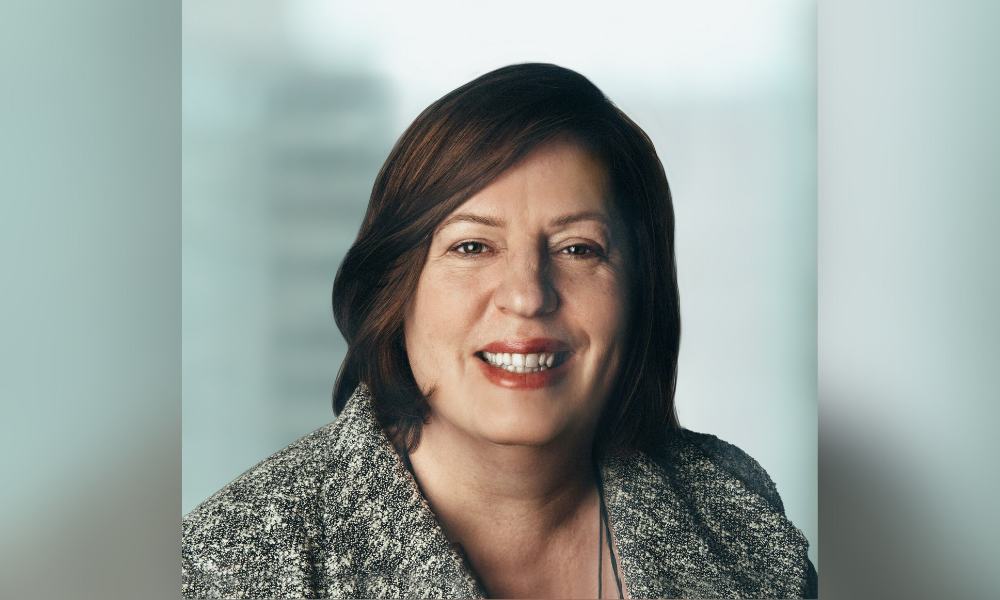Newly appointed leader of FP Canada Institute unveils first priorities in push to elevate education for financial planners

Doubling down on its commitment to elevate financial planning for all Canadians, FP Canada recently announced Alexandra Macqueen, a prolific educator and respected figure in the profession, to a new key role. And for her, it’s the mandate of a lifetime.
“It's a really exciting time for FP Canada, and I'm thrilled to be here. I couldn't imagine any place I'd rather be,” says Macqueen, who’s just officially taken the reins as vice president, Learning, Development and Professional Practice. “I truly believe this is a transformative moment that will allow us to deliver on our mandate of ensuring financial wellbeing for all Canadians.”
Through a decades-long career, Macqueen has built a reputation as an educator for both consumers and industry professionals. A consummate advocate of financial well-being, her resume includes several publications on the topics of personal financial planning and retirement income. Most recently, she was the director of Content Development at the FP Canada Institute.
“It's hard for me to think of an area of life that’s not touched by financial literacy. From the birth of a baby to the very last breath you take, everything has a financial component,” she says. “I don’t think you can have effective financial literacy for Canadians without well-trained financial planners.”
At FP Canada, training for financial planners is defined by its Financial Planning Body of Knowledge, Competency Profile, and Professional Education Programs. Those elements define the scope of expertise and professionalism expected of aspiring QAFP professionals or CFP professionals to guide Canadians onto the path to financial resilience and freedom.
“The depth of knowledge required for the people that we certify is very, very extensive,” Macqueen says. “It’s a demanding undertaking. But once you have it mastered, you can spread that out to help more Canadians develop their own literacy.”
In her new role, Macqueen will take charge of the FP Canada Institute, FP Canada’s education-focused division. In keeping with FP Canada’s broader Imagine 2030 agenda, the institute has announced plans to develop a new end-to-end education path for QAFP and CFP certification, which most notably will include technical education for the first time ever.
“The first order of priority for sure is to develop this technical education, and get that out into the world,” Macqueen says. “It's directed at people who are not yet certified, but who intend to become certified.”
As Macqueen explains, the path toward achieving both CFP certification and QAFP certification has many moving parts. That includes technical and professional education requirements, work experience, a commitment to a high standard of ethics, and completion of a certifying exam.
But even before those stepping stones, the institute requires would-be CFP professionals and QAFP professionals to have achieved a certain level of technical education. Currently, Macqueen says, every person who wants to embark on the journey to being a professional financial planner has to obtain that education from other sources.
“For us to start to offer that technical education under our roof means that someone can express an interest in pursuing the path to certification, and we can welcome them into our house from day one,” she says.
After that project is completed, Macqueen’s next priority is the post-certification world. The mission of elevating financial planning should include already-minted CFP professionals and QAFP professionals, she notes. To that end, she wants to explore how to build up continuing education offerings for FP Canada to support its existing certificants in making their practices better.
“At this point, it's pretty much blue sky. We don't have very much continuing education now, so I think it's a really wide open field,” she says. “I'm going to spend some time talking to certificants and our industry partners, about the challenges and opportunities they see.”
Building a strong foundation of professional and technical education, Macqueen says, will be critical for consumers to feel financially confident. While there’s no shortage of people holding themselves out as advisors, the current landscape is cluttered with a diversity of designations and credentials, making it difficult for Canadians to determine who’s equipped to support their specific needs and objectives.
“It can be hard to know what’s in the tin when you see someone’s title,” Macqueen says. “We want people to know that our certificants provide holistic financial planning advice across what we define as the six areas of financial planning competence. … To me, that's the biggest challenge.”



